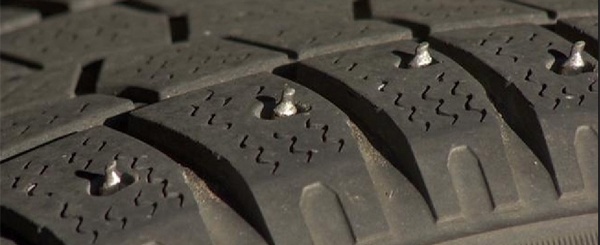Rules about winter tyres for trucks and buses differ between countries and regions all over the world. Many countries, of course, have such a warm climate all year round that there is no need for winter tyres at all. Other countries have such cold winter climate that winter tyres are necessary. Yet other countries are prioritising safety, with strict regulations for the use of winter tyres accordingly. Let’s have a look at winter tyres!
First, let’s conclude that there is no such thing as a one-tyre-fits-all-conditions solution. Instead, different tyres have different features that make them more, or less, suitable for different driving conditions. Roads can be freezing cold in the winter and steaming hot in the summer. Roads can be dry, wet, icy or muddy, and unlike racing cars, trucks cannot change tyres depending on short-term road conditions. Accordingly, the choice of truck tyres will be a compromise.
Tyres provide traction
The tyres’ job is to provide traction enough to keep the truck safely on the road when rolling, braking and turning. In theory, a soft and smooth tyre would be ideal – on dry roads. On wet roads, water must be pressed away so the contact surface is not lubricated. That’s why tyres are treaded so that the grooves can channel the rainwater away. During wintertime, things get complicated as friction on icy roads may be so low that driving safety is put at hazard. That’s when you may consider winter tyres for your truck.
What is a winter tyre?
Tyres could be optimised for icy and slippery road conditions. There are two main alternatives:
1. Studded tyres - Studs or spikes may provide excellent traction on icy roads as the steel points will press into the ice by the weight of the truck. Yet effective, there are severe downsides to this type of tyre: When roads are dry, the metal studs may slide on concrete and asphalt, and actually reduce traction and manoeuvrability! The studs could wear quite quickly, and the tyre will lose its winter features.

Even if they are a safety option, road wear from studded tyres is so substantial that they are forbidden in many countries and regions.
2. Friction tyres - By using special rubber materials and special treading, tyre characteristics could be varied. A friction tyre is a tyre where materials and design have been optimised for winter conditions. Such a tyre provides improved road friction on snowy and icy roads and is also good for dry roads. To many, this is the ultimate compromise between cost, wear resistance, and safety.
Should I consider winter tyres for my truck?
For the hauler operating in cold climate and hilly areas, winter tyres may be a given. Still, many haulers don’t use specific winter tyres at all – not even in winter conditions! Some to avoid the time, hassle, and cost of changing the wheels, others, just because they don’t think winter tyres are necessary. Hopefully, most decision makers put driver’s safety and road safety first. But, it’s not only a cost of safety. With proper equipment, the driver can work efficiently and keep to the schedule without unexpected delays. This is where winter tyres could come in handy.
But, there may be an even better option: automatic snow chains. At a fraction of the price for a full set of winter tyres you get the most effective and convenient device for traction and safe driving – and it’s a one-time investment that lasts for the life of the truck.


